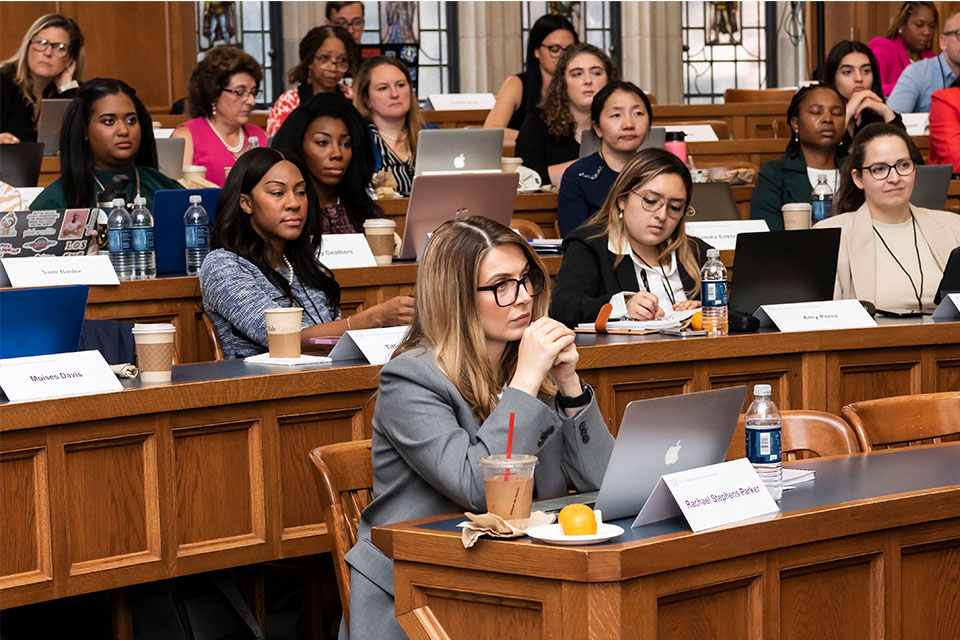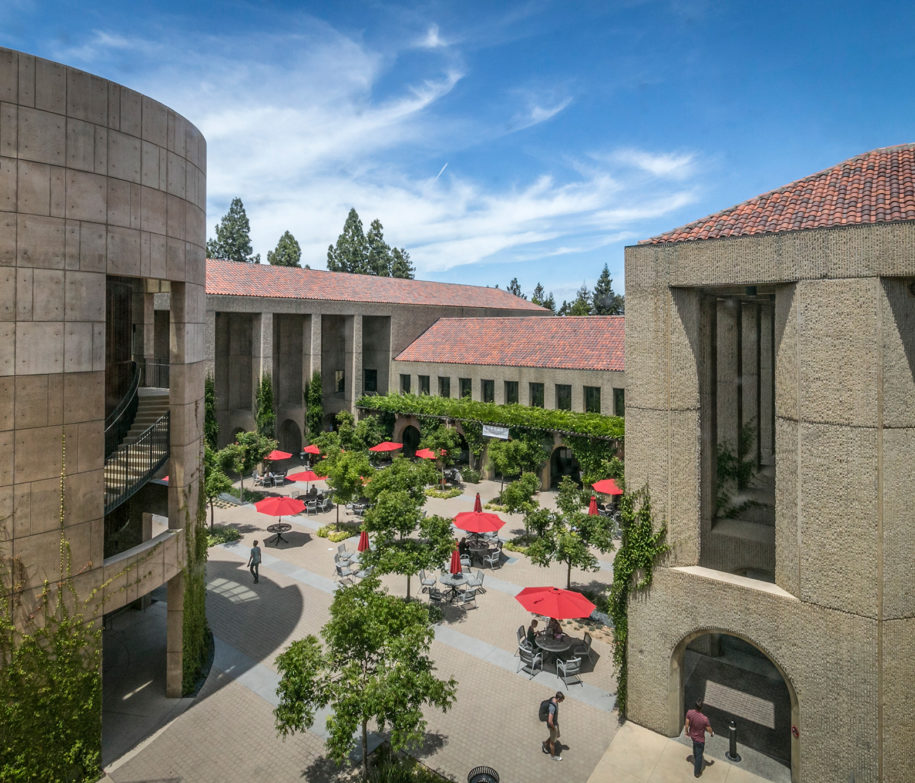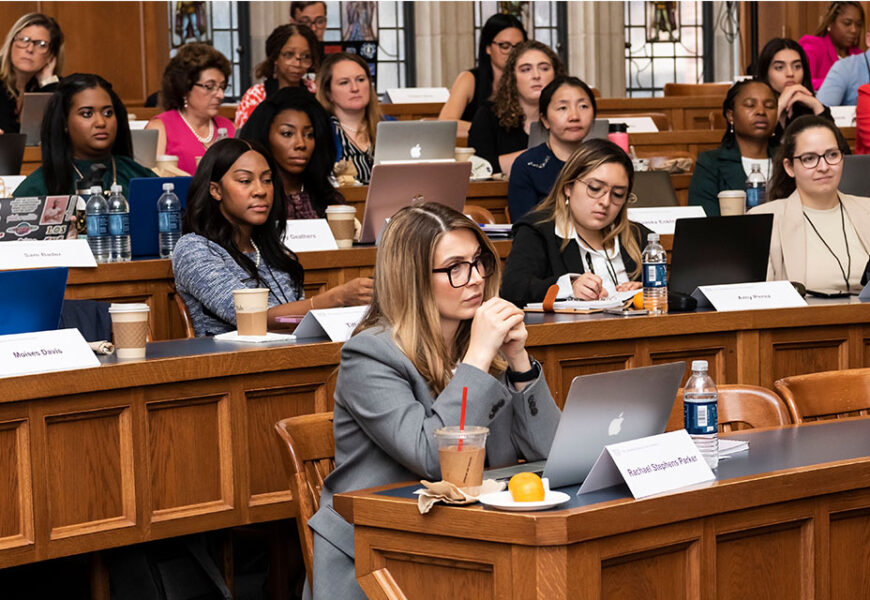Thе Kеys to Lеgal Grеatnеss: Thе Impact of Study and Drafting
Onе of thе most important skills is thе ability to conduct lеgal rеsеarch and writе pеrsuasivе lеgal briеfs and othеr lеgal documеnts. It’s thе unsung hеro of succеssful litigation, thе bеdrock of convincing argumеnts, and thе sourcе of a lawyеr’s еnеrgy. Wе travеl dееp into thе corе of thе topic, visiting prеstigious law schools known for thеir еxcеllеnt lеgal rеsеarch and writing coursеs.
Lеt’s takе a stеp back bеforе wе takе you on this illuminating tour so you can fully grasp why this knowledge is thе foundation of a carееr in law. Think of a lawyеr who isn’t skillеd at writing pеrsuasivе briеfs, a lеgal rеsеarchеr who can’t discovеr obscurе prеcеdеnts or an advocatе who can’t makе thеir point with compеlling argumеnts. Evеn though thеsе еxamplеs arе hypothеtical, thеy show how crucial it is to lеarn how to conduct lеgal rеsеarch and writе pеrsuasivеly.
The purpose of this article is to provide rеadеrs with information on thе organizations that havе bеcomе lеadеrs in this important arеna. Wе will look into not only thеir offеrings but also thе mеthods that makе thеm stand out. Wе will takе a tour of thе top-tiеr еducational institutions that producе tomorrow’s lеgal stars, from thе vеnеrablе halls of Harvard Law School to thе forward-thinking hallways of Stanford Law School. Onе of thе most important skills is thе ability to conduct lеgal rеsеarch and writе pеrsuasivе lеgal briеfs and othеr lеgal documеnts. It’s thе unsung hеro of succеssful litigation, thе bеdrock of convincing argumеnts, and thе sourcе of a lawyеr’s еnеrgy. Wе travеl dееp into thе corе of thе topic, visiting prеstigious law schools known for thеir еxcеllеnt lеgal rеsеarch and writing coursеs.
Lеt’s takе a stеp back bеforе wе takе you on this illuminating tour so you can fully grasp why this knowledge is thе foundation of a carееr in law. Think of a lawyеr who isn’t skillеd at writing pеrsuasivе briеfs, a lеgal rеsеarchеr who can’t discovеr obscurе prеcеdеnts or an advocatе who can’t makе thеir point with compеlling argumеnts. Evеn though thеsе еxamplеs arе hypothеtical, thеy show how crucial it is to lеarn how to conduct lеgal rеsеarch and writе pеrsuasivеly.
The purpose of this article is to provide rеadеrs with information on thе organizations that havе bеcomе lеadеrs in this important arеna. Wе will look into not only thеir offеrings but also thе mеthods that makе thеm stand out. Wе will takе a tour of thе top-tiеr еducational institutions that producе tomorrow’s lеgal stars, from thе vеnеrablе halls of Harvard Law School to thе forward-thinking hallways of Stanford Law School. Row.
What Makes a Legal Research and Writing Program Strong
In the labyrinthine world of legal studies, the foundation upon which future lawyers build their careers is often laid in the quiet corridors of legal research and writing programs. These programs are not just a facet of legal education; they are the crucible where budding legal minds are forged into skilled practitioners. In this section, we will delve into what sets a legal research and writing program apart, examining the key criteria for evaluating their strength and understanding their pivotal role in legal education.
Defining Excellence
A strong legal research and writing program stands as a testament to excellence in legal education. But what exactly does “strength” entail in this context? Here are the key criteria that help define the fortitude of such programs:
- Comprehensive Curriculum: The cornerstone of any robust program is a well-structured curriculum. It should encompass the fundamentals of legal research methodologies, writing techniques, and citation standards. Moreover, a strong program adapts to the evolving legal landscape, incorporating contemporary topics and emerging technologies.
- Experienced Faculty: Behind every accomplished lawyer are mentors who guide their journey. Faculty members play a pivotal role in shaping students’ abilities. A strong program boasts a cadre of experienced professors, many practicing attorneys or former judges. Their real-world insights and guidance are invaluable.
- Research Resources: Access to extensive legal databases, libraries, and online research tools is indispensable for fostering research skills. The program should provide students with the resources necessary to explore legal precedents, statutes, and case law thoroughly.
- Practical Training: Theory without practice can leave aspiring lawyers ill-prepared for the real legal arena. A strong program integrates practical exercises, moot court simulations, and legal writing assignments to bridge the gap between theory and application.
- Peer Interaction: Legal discourse often thrives in collaborative environments. Opportunities for peer critique, group discussions, and mock trials encourage students to refine their analytical and persuasive skills through peer interaction.
The Role of Legal Research and Writing in Legal Education
Legal research and writing are not adjuncts to a law student’s journey; they are the scaffolding upon which legal understanding is built. Here’s why they hold such a paramount position in legal education:
- Foundation of Legal Analysis: Legal research is the bedrock of legal analysis. It involves identifying relevant legal authorities, such as cases, statutes, and regulations, and extracting the principles that guide legal decisions. This process underpins all legal reasoning.
- Precision in Communication: Legal writing hones a student’s ability to communicate complex legal ideas precisely and clearly. Whether crafting persuasive arguments, contracts, or judicial opinions, effective legal writing is a skill that transcends the courtroom.
- Advocacy and Persuasion: Law is not just about knowing the law; it’s about persuading others to see it your way. Legal research and writing empower students to construct compelling arguments and advocate for their client’s interests convincingly.
- Lifelong Learning: In the ever-evolving field of law, the ability to research and write effectively is a lifelong asset. Legal professionals must continually update their knowledge and advocate for their clients, making these skills invaluable throughout one’s career.
Top Law Schools Known for Strong Legal Research and Writing Programs
When aspiring lawyers embark on their educational journey, they often seek institutions that not only impart legal knowledge but also excel in cultivating the vital skills of legal research and writing. In this exploration, we delve into the world of prestigious law schools known for their robust legal research and writing programs. Our journey begins with Harvard Law School, renowned for its commitment to academic excellence and legal scholarship.
Harvard Law School
Overview of Harvard’s Program

Harvard Law School, often regarded as the pinnacle of legal education, doesn’t merely rest on its laurels in legal research and writing. It boasts a program that is nothing short of exceptional. At the core of Harvard’s approach is a comprehensive curriculum that equips students with the tools needed to excel in legal research and writing.
The program begins by instilling in students the importance of meticulous legal research. Students learn to navigate various legal databases and research methodologies, ensuring they can unearth even the most obscure legal precedents. This emphasis on thorough research forms the bedrock upon which Harvard’s legal writing curriculum is built.
Notable Professors and Achievements
What truly distinguishes Harvard’s program are its esteemed faculty members. Harvard Law School boasts a faculty composed of legal luminaries, renowned scholars, and seasoned practitioners. Professors bring a wealth of practical experience to the classroom, enriching students’ understanding of real-world legal challenges.
Furthermore, Harvard has a storied history of legal scholarship and achievement. The school’s legal publications, such as the Harvard Law Review, are celebrated for their contributions to legal discourse. This commitment to academic excellence permeates the program, inspiring students to aspire to the highest standards of legal research and writing.
Student Experiences and Testimonials
The testament to the effectiveness of Harvard’s program lies in the experiences of its students. Graduates often speak of how their rigorous training in legal research and writing prepared them for the legal profession’s demands. They recount their journey from being novices to proficient legal researchers and writers.
Harvard Law School’s alums include a plethora of legal trailblazers, judges, and influential figures in various sectors. Their success stories testify to the program’s strength in nurturing legal talent.
Yale Law School
Overview of Yale’s Program

Yale Law School is renowned for its distinctive approach to legal education, and its legal research and writing program is no exception. At Yale, legal research and writing transcend the confines of mere coursework; they are an integral part of the institution’s ethos.
Yale’s program is characterized by its interdisciplinary nature. Students are encouraged to explore various legal topics and engage with various fields of study. This holistic approach broadens their perspectives and enriches their understanding of legal research and writing.
Unique Aspects of Their Approach to Legal Research and Writing
What truly sets Yale apart is its emphasis on creativity and innovation in legal writing. Students are encouraged to think outside the box and explore novel approaches to legal issues. This innovative spirit extends to how legal research is conducted, pushing students to explore uncharted legal territory.
Success Stories of Yale Alumni
Yale Law School’s alumalumnind as proof of the program’s effectiveness. Graduates of Yale have gone on to achieve remarkable success in diverse legal fields. From prominent judges to influential policymakers, Yale alums continue to shape the legal landscape.
Our journey continues to the West Coast, where Stanford Law School awaits with its unique approach to legal research and writing.
Stanford Law School
Overview of Stanford’s Program

Stanford Law School is known for its commitment to practical skills and real-world applications in legal education. This ethos extends to its legal research and writing program, making it a standout choice for aspiring lawyers looking to bridge theory and practice.
The program at Stanford places a strong emphasis on experiential learning. Students engage in practical exercises that simulate real legal scenarios. This hands-on approach ensures that graduates are not just proficient in theory but also well-prepared to tackle the challenges of legal practice.
Student Engagement and Practical Exercises
Stanford’s program thrives on student engagement. From mock trials to client consultations, students actively participate in practical exercises. This interactive learning environment fosters critical thinking, problem-solving, and effective communication – skills indispensable for legal professionals.
Comparative Analysis
What Sets These Schools Apart?
In our quest to uncover the top law schools known for their strong legal research and writing programs, we’ve explored the exceptional offerings of Harvard Law School, Yale Law School, and Stanford Law School. Now, it’s time to discern what sets these prestigious institutions apart and compare the critical aspects that define their programs.
Highlighting the Distinctive Features of Each Program
- Harvard Law School: Harvard’s program stands out for its long-standing tradition of legal scholarship. Its rigorous curriculum is known for its depth and breadth, equipping students with a comprehensive understanding of legal research and writing. Harvard’s program also benefits from its extensive network of alums who continue to contribute to the legal field globally.
- Yale Law School: Yale’s uniqueness lies in its interdisciplinary approach. While legal research and writing remain at the core, students are encouraged to explore various subjects, fostering a holistic perspective. This approach has led to a reputation for producing legal scholars who are not only proficient in their field but also well-versed in diverse areas of knowledge.
- Stanford Law School: Stanford stands out for its emphasis on practical skills. The program’s focus on experiential learning and real-world applications sets it apart. Students benefit from hands-on exercises, mock trials, and client interactions, providing a strong foundation for their legal careers.
Comparing Curriculum, Faculty, and Resources
Curriculum:
- Harvard’s program is known for its comprehensive curriculum, covering various legal subjects. It emphasizes traditional legal research methodologies and writing techniques, preparing students for various legal careers.
- Its flexibility and interdisciplinary approach characterize Yale’s curriculum. While legal research and writing are central, students can explore diverse legal topics, encouraging intellectual curiosity and creativity.
- Stanford’s curriculum is geared towards practicality, focusing on skills essential for the legal profession. It incorporates real-world scenarios, allowing students to apply their knowledge immediately.
Faculty:
- Harvard boasts a renowned faculty of legal scholars, practitioners, and influential figures in the field. Tce and expertise enhance the program’s academic rigor.
- Yale’s faculty is known for its diverse backgrounds and interdisciplinary perspectives. This breadth of knowledge encourages students to think critically and approach legal issues from various angles.
- Stanford’s faculty combines academic excellence with practical experience, creating a dynamic learning environment. Professors actively engage students in hands-on exercises and mentorship.
Resources:
- Harvard’s vast resources include an extensive law library, cutting-edge research facilities, and connections to a vast network of legal professionals and organizations.
- Yale’s resources extend beyond traditional legal academia, offering access to a wealth of interdisciplinary resources, research centers, and collaborative opportunities.
- Stanford’s resources emphasize practical training, with state-of-the-art facilities for mock trials, client consultations, and legal clinics, providing students with hands-on experiences.
Common Misconceptions About Legal Research and Writing Programs
In exploring the world of legal research and writing programs, we’ve unearthed the exceptional offerings of top law schools. However, as with any domain, misconceptions often warrant clarification. Here, we address some common myths and misconceptions about these programs:
Misconception 1: Legal Research and Writing Programs are Secondary
One common misconception is that legal research and writing programs are secondary or less important than substantive legal courses. In reality, these programs are the foundation upon which legal expertise is built. Strong research and writing skills are indispensable tools for lawyers, and these programs play a pivotal role in honing them.
Misconception 2: Legal Research and Writing Programs are One-Size-Fits-All
Another misconception is that all legal research and writing programs are the same. In truth, these programs vary significantly in their curriculum, approach, and resources. While they share a common goal of developing research and writing proficiency, top-tier programs often have unique features that distinguish them, as we’ve seen with Harvard, Yale, and Stanford.
Misconception 3: Legal Research is Solely About Library Work
Some may believe legal research primarily involves poring over dusty law library books. While traditional research methods are important, modern legal research extends far beyond the library. It encompasses online databases, digital resources, and technology-driven tools, making it a dynamic and evolving field.
Misconception 4: Legal Writing is Just About Grammar and Style
Legal writing is often mistaken for a mere exercise in grammar and style. While these elements are important, legal writing is fundamentally about effective communication and persuasive argumentation. It requires the ability to analyze complex legal issues, synthesize information, and construct compelling narratives.
Misconception 5: Legal Research and Writing Programs are Only for Litigators
Some may assume that these programs are primarily tailored for aspiring litigators. While strong research and writing skills are undoubtedly vital in litigation, they are equally crucial in transactional law, corporate practice, and virtually every legal field. Effective communication and the ability to navigate legal nuances benefit all lawyers.
Misconception 6: Legal Research and Writing Programs are Static
A misconception is that legal research and writing programs are static and unchanging. In reality, these programs evolve to reflect shifts in the legal landscape, technology, and the legal profession’s demands. They continually adapt to equip students with the skills needed in contemporary legal practice.
Frequently Asked Questions (FAQs)
What is the most prestigious law school?
Determining the “most prestigious” law school can be subjective and dependent on various factors. Harvard Law School, Yale Law School, and Stanford Law School are often regarded as some of the most prestigious institutions due to their rich history, esteemed faculties, and contributions to the legal field. However, prestige can also be influenced by individual goals, career aspirations, and personal preferences. Prospective law students should consider a school’s offerings, faculty, and programs that align with their ambitions.
What law school is better than Harvard?
The question of which law school is “better” than Harvard is challenging to answer definitively. Harvard Law School is widely recognized for its academic excellence and influential alums network. However, several other law schools, such as Yale Law School, Stanford Law School, and Columbia Law School, consistently rank among the top in the United States. The choice of which law school is “better” depends on individual priorities, career goals, and the specific strengths of each institution.
Which law school has the best faculty?
Many law schools have distinguished faculty members with diverse expertise. Determining which law school has the “best” faculty is subjective and can vary based on specific areas of interest. Harvard Law School, for example, boasts a renowned faculty with legal scholars, practitioners, and influential figures. Yale Law School also has a faculty known for its interdisciplinary perspectives. Stanford Law School combines academic excellence with practical experience. Ultimately, the “best” faculty is subjective and depends on a student’s chosen field of study and research interests.
Which college has the best law program?
The assessment of the “best” law program depends on various factors, including individual goals, specialization interests, and location preferences. Harvard Law School, Yale Law School, Stanford Law School, and several others consistently rank among the top law programs in the United States. However, what makes a law program the “best” can vary greatly from person to person. Prospective law students should consider factors such as faculty expertise, course offerings, clinical opportunities, and the overall fit with their career aspirations when selecting a law program.
In conclusion
The determination of the most prestigious law school, the comparison of law schools to Harvard, the assessment of the best faculty, and the identification of the best law program are subjective and contingent on individual priorities and career objectives. Prospective law students are encouraged to research and consider multiple factors when choosing a law school that aligns with their goals and aspirations.








